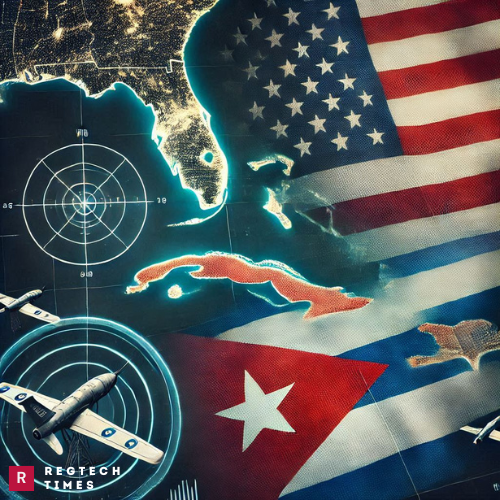Recent allegations about the existence of Chinese-operated spy bases in Cuba have sparked heated debates, with Cuban officials forcefully denying the accusations. The controversy has once again placed Cuba in the spotlight of global tensions, especially concerning its relationship with the United States and China.
What Are the Accusations?
Reports from U.S. intelligence agencies suggest that China has built advanced facilities in Cuba to conduct espionage activities targeting the United States. These alleged bases are said to intercept sensitive communications, including satellite signals and military data, from American installations. According to these reports, the bases use cutting-edge technology and are staffed with trained personnel capable of collecting vital information.
The U.S. claims this arrangement is part of a deal between Cuba and China, where Beijing provides financial aid to the struggling Cuban economy in exchange for access to the island’s strategic location near the U.S. mainland. The proximity to Florida and other critical U.S. installations makes Cuba an ideal spot for intelligence operations, according to the reports.
These allegations are not new, but they’ve gained attention again following a recent report released in December 2024. The report outlines specific activities allegedly conducted at these bases, including monitoring U.S. military communications and intercepting government data. Such claims have added fuel to ongoing tensions between the U.S. and Cuba, further complicating their already strained relationship.
Cuba’s Fierce Denial
Cuban officials have strongly pushed back against the accusations. A prominent Cuban government spokesperson labeled the claims as “lies” and accused the United States of spreading misinformation. In a fiery public statement, a key Cuban representative to North America dismissed the allegations, urging the U.S. to “find another lie.”
China Issues Stark Warning by Escalating Military Movements Around Taiwan
According to Cuba’s government, there are no foreign espionage bases on its soil. Officials argue that these accusations are simply a tactic by the U.S. to justify the decades-long economic sanctions and embargoes that have crippled Cuba’s economy. Cuba maintains that it values its sovereignty and would not allow any activities that undermine its independence.
In June 2023, similar claims about Chinese bases surfaced, prompting a firm response from Cuban authorities. At that time, the Cuban foreign ministry described the reports as part of a “disinformation campaign” designed to demonize the island nation. Cuban officials insist that these repeated allegations are baseless and serve as a smokescreen to distract from U.S. policies they deem aggressive and unjust.
Why Does This Matter?
The idea of foreign spy bases in Cuba matters for several reasons. First, Cuba’s close proximity to the U.S. makes it a sensitive location for potential intelligence activities. If such bases were real, they could collect critical information about U.S. military movements and government operations, raising national security concerns in Washington.
Second, the allegations highlight the growing influence of China in Latin America, which is becoming a major point of concern for the United States. A strategic partnership between China and Cuba, if proven, would signal a shift in geopolitical power in the region, putting the U.S. on edge.
Lastly, this situation reflects the continued diplomatic tension between the U.S. and Cuba. The decades-long conflict between the two countries has been marked by accusations, counteraccusations, and a lack of trust. These new allegations about Chinese bases only add another layer of complexity to an already fraught relationship.
Cuba’s denials, combined with U.S. reports of espionage, leave much room for speculation. While the accusations have yet to be definitively proven, they serve as a reminder of the geopolitical chess game playing out in the Caribbean, with Cuba caught in the middle. The debate over these alleged spy bases continues to fuel tensions and underscores the complex web of international relations surrounding the island nation.


